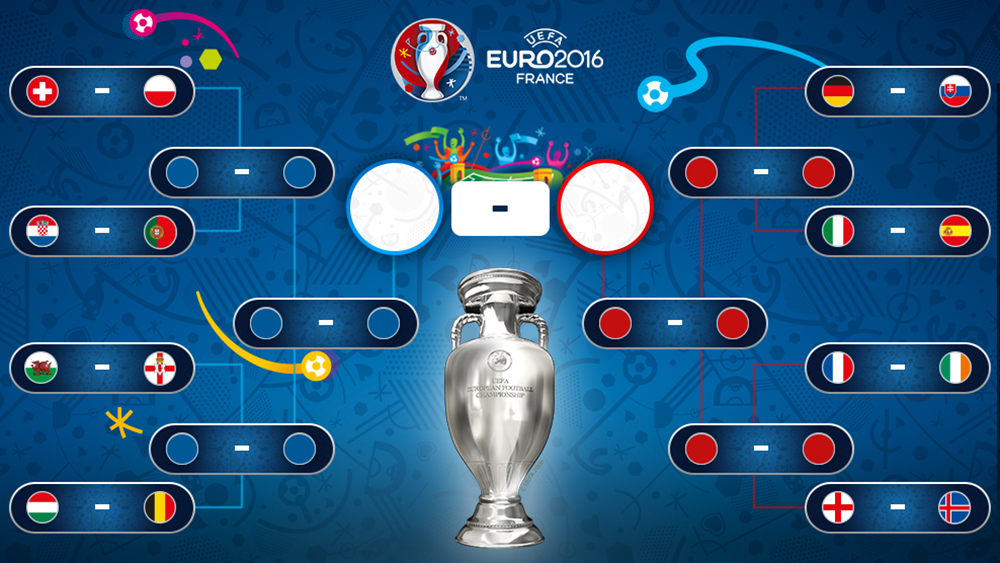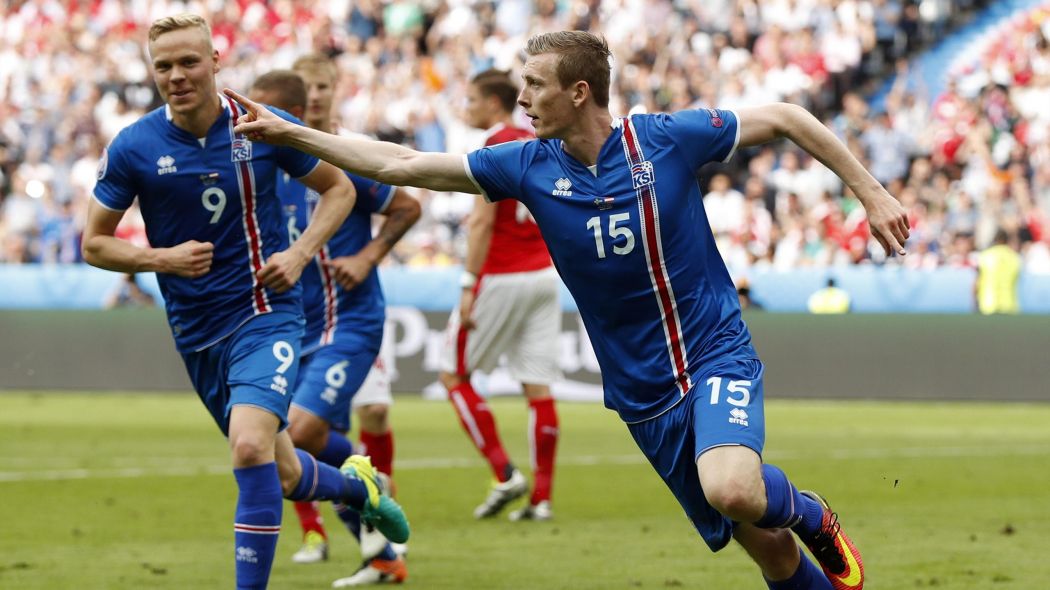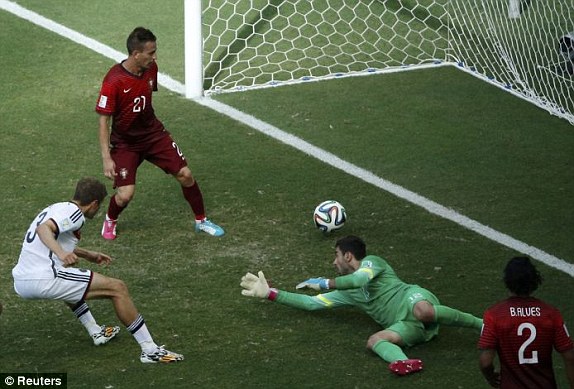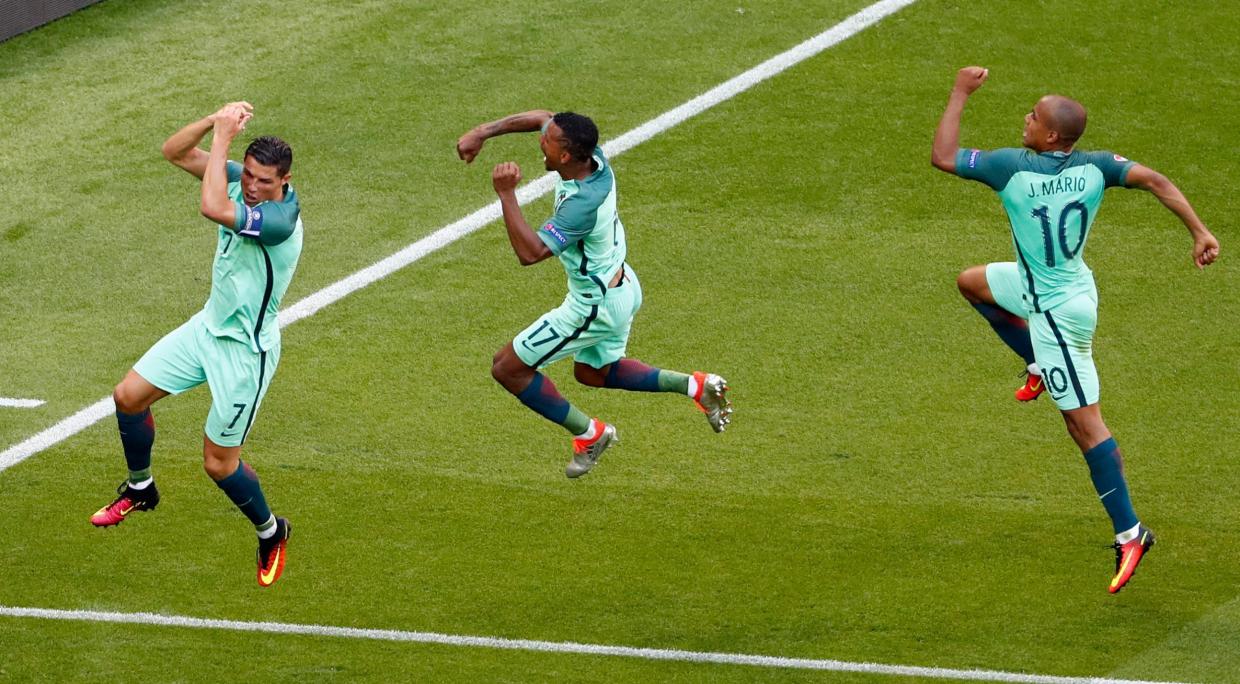Now that the group stages have finished at Euro 2016, it’s time for the knockout rounds to commence with some mouth watering ties such as Italy versus Spain, Wales versus Northern Ireland and Croatia versus Portugal to look forward to.
However, the fact that the Euros was expanded to 24 teams has created problems. Traditionally there was only 16 teams split into 4 groups with the top two from each group going through to the quarter finals. The top team in each group would play one of the second best teams from each group in the quarter finals, and this worked because it was a fair system.
As said above, Euro 2016 has 24 teams who are split into 6 groups of 4 with the top two from each group, and the top 4 third placed finishers going through to the round of sixteen. This causes problems because some of the winners of the group play teams who finished third while others play teams that came second. This seems unfair because some teams have better rewards for coming first.
Good examples of this are Hungary and Italy who topped their respective groups, but had to play Belgium and Spain due to them coming second in their groups. Whereas Germany and Wales who topped their groups played Slovakia and Northern Ireland in the next round who finished third in their respective groups.

Another problem created by this format is that the teams in the last group have a major advantage over the teams in the first few groups especially in regard to best third place finishers. The example in this is Albania who against all odds beats Romania 1-0 to come third in Group A with 3 points, and a goal difference of -2.
The goal difference is key because the majority of the third place finishers ended up with three or four points. Portugal and Iceland, who were in Group F, knew that they could both draw their games and still get through because either of them would finish second or third with three points, and both would still have a better goal difference than Turkey or Albania. This shows how much of an advantage this format creates for teams playing later on which can cause teams to try and manipulate the results of games rather than just go all out for a win.

This isn’t a criticism aimed at the specific teams involved because any most teams would do the same in that situation, but the Portugal versus Hungary match is a great example of how the nature of this format can negatively affect games. For the first 70 minutes we were treated to the game of the tournament so far with the Hungarians pulling ahead three times in their quest to keep their status as group leaders with Portugal clawing themselves back into the match each time.
Up until this point it was a great example of what the matches in the last round of group fixtures should be like, but then it seemed to settle down when both teams realised that they would get their desired outcome with this result, which was symbolised by the note passed to Cristiano Ronaldo from Fernando Santos, and this led to an anticlimactic last twenty minutes.
I’ve come up with a few possible solutions below to try and keep the excitement of matches such as the one between Hungary and Portugal mentioned above while at the same time ensure that it is a fair system.
Ranked Standings
One way to solve this problem is rank the teams when they get through to the round of sixteen into the first places, second place and four best third place finishers. Each of them will be ranked by points in order to encourage teams to play for a win in each game which should make each game enjoyable to watch because teams won’t necessarily just be sitting back in order to play for a draw.
The encouragement to play for a win comes from the fact that the team that came first in a group with the most points out of all the top placed finishers will play the team from the third place finishers with the least points. Therefore it should encourage games to be like Portugal versus Hungary was in the first 70 minutes: end to end free flowing football in which both teams are going all out for a victory.
Example of the Format:
1st vs 16th
2nd vs 15th
3rd vs 14th
4th vs 13th
5th vs 12th
6th vs 11th
7th vs 10th
8th vs 9th
If Euro 2016 had this format then the Round of Sixteen fixtures would be: France vs Northern Ireland, Germany vs Portugal, Croatia vs Republic of Ireland,Wales vs Slovakia, Italy vs Switzerland, Hungary vs England, Poland vs Iceland, Spain vs Belgium. As can be seen, the fixtures are still pretty tasty because you get games like Germany vs Portugal and Spain vs Belgium which would be great games to watch because of the quality on show. None of these teams could complain either because it was based on their performances in the group stages, so they were rewarded for going for the win.

The only possible problems with it are that the teams from the traditional ‘group of death’ would continue to have hard games in the following rounds due to it being the hardest group to obtain points from, but that is the luck of the initial draw because they have seedings and so forth to try and stop ridiculously difficult groups from happening. However, they aren’t always able to stop multiple strong teams from being in the same group, and every team has a chance of being put in it so it is fair as well as the fact that there will always be a group that is harder than the rest.
The other problem is that the favourites usually have a beneficial draw going in to the tournament because of the seedings which gives them an easier group and therefore a better chance of getting more points. However, this can be counteracted by the point that to win a tournament a team has to beat the best teams, so an easy route through the tournament isn’t a true indication of who are the best teams.
Random Draw
Another possible solution is to have a Round of Sixteen draw after the group stages have finished where there are no seeds, and the teams are drawn out at random in a similar manner to the Champions League knockout draws. This would ensure that there is no manipulation of results by teams in order to ensure an easier route. Due to none of the teams would know who they were facing, so they would therefore only be focused on qualifying from the group.
This system is probably the fairest because it ensures no favouritism to the strongest teams, so it would benefit the lower ranked teams because they could get a favourable match in the Round of Sixteen.
First place in the group doesn’t necessarily benefit a team because the opponent in the next round is random which isn’t the case in the current format. The teams will play to ensure passage to the next round which would probably mean that teams would sit back and defend in deep in the hope of either getting a draw or catching a team on the counter attack.
This format wouldn’t be helped by the four best placed third teams because it acts as an added ‘safety net’ which lowers the amount of points needed to get through to the next round. Therefore, it encourages defensive football rather than free flowing attacking football due to teams not willing to risk their chance of qualification in the hope of getting a win.
As you can see there are problems with each format including the current one, and there will always be teams that lose out in specific tournaments due to none of the systems being completely fair.
However, I believe that the ranked standings is the correct format to use because it encourages teams to play for the win which is what we want to see in football at the end of the day. The format also means that the matches should get better the further you get on in to the tournament because the teams who reach the knockout stages deserve to be there rather than getting there through an easy route.
